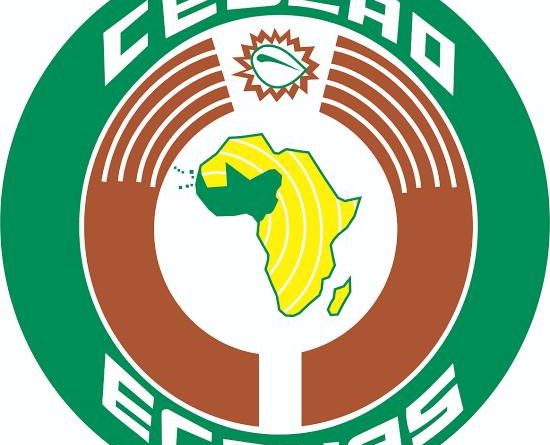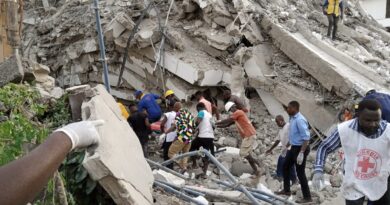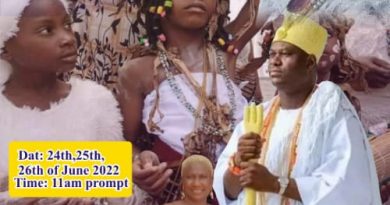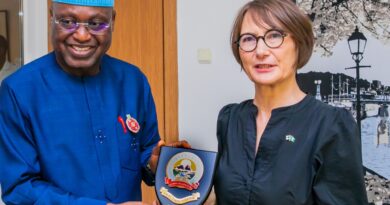Development Cannot Be Achieved In West Africa Without Security- ECOWAS
By Bukar Bolori
Economic Community of West African States (ECOWAS) has reiterated that the economic development and integration of the West Africa cannot be achieved without peace and security in the sub-region.
Representatives of the ECOWAS Commission in Cape Verde, Dr. Samuel Lamptey, said this on Tuesday at the opening ceremony of the Delocalised meeting of three of the Parliament’s 14 standing Committees, comprising of the Committees on Education, Science and Culture / Health/ Telecommunications and Information technology, which has as theme, “Religious tolerance and harmony: Essential factors for development, peace and stability in ECOWAS region”.
Lamptey noted that religious intolerance poses a threat to the region’s development and integration programme.
He said there is urgent need to address the root cause of extremism and also prevent radicalisation, stressing that this has become necessary if the region is to achieve its cooperation and integration agenda.
Lamptey said: “The Economic Community of West African States-ECOWAS, created on May 28,1975, by the Lagos Treaty, has the mission of promoting regional cooperation and integration with a view to create an economic union in West Africa and thus contributing to improving the standard of living of their populations.
“However, the cyclical conflicts and the instability that occurred in our subregion in the 1990s, early 2000s and that continue to the present day, led to the conclusion that the desired economic prosperity, translated into the guarantee of economic growth, promotion of good relations between member states, progress and development of the African continent, cannot be achieved in the absence of peace and security in the sub-region.”
Lamptey while explaining the numerous programmes and actions put in place by the Commission to promote regional integration, said, “the regional integration and economic development that we so desire are difficult to achieve in contexts of insecurity, political and governmental instability and recurrent conflicts.”
He noted that the region is confronted with numerous challenges including proliferation of terrorists groups, criminal networks, environmental pressures, and serious governance problems.
The Commission’s representative in Cape Verde however pointed out that “sub-region led initiatives to solve our problems can generate more and better results due to a deeper understanding of local contexts.”
He noted that the delocalised meeting is another step to ensuring the success of integration and economic development in the region.
He said: “We as community citizens, must contribute to the promotion of dialogue, reconciliation, culture of tolerance with a view to create an integration, culture of tolerance with a view to create an integrated region within which populations can move freely, have access to education and health care, develop economic and commercial activities and live in dignity, in an environment of peace and security.”
Head of Cape Verde delegation and Chair of ECOWAS Parliament Committee on Health, Dr. Orlando Dias, in his welcome address urged his colleagues on the need to identify the root cause of religious crisis, with the view to strengthen integration.
Dias also stressed that integration could be easy if attempts are made to prevent some of the religious conflicts in the region.
He noted that this has made it imperative for the people to understand the importance of tolerance, peace and security.
The Co-chair of the joint committee, Hon. Aime Assie noted that the meeting was brought to Cape Verde to bring the parliament closer to the people and create a region without borders, adding that the meeting was also an opportunity to have a new approach to threats to peace and security in West Africa.
He stressed that the parliament has a role to play to change the mentality of the people.He assured that the meeting will come up with a report that would be adopted in the next session.
He said, “The need for parliament to go close to the populations to be able to consolidate the foundation of democracy to ensure that every citizen of our community is involved in creating a region with a border prosperous and where the development of citizens is the focus. I want to say that our regions has been experienced in terrorist problem which is a big threat to its integration and its development.
“So in this context a threat has been happening. The committee is meeting a praia and they’re going to work on an issue that is intolerant. Then religious tolerance and harmony are essential factors for development, peace and stability in the course region. So because of inter religious and ethnic issues and problems, which the population suffers and are facing.
“Preventive initiatives must be increased, to be sure that all these issues are handled that is why we have the objective of creating the platform of sharing of information containing religious leaders, traditional leaders within West Africa to look into issues of peace and reconciliation and this meeting, here is an opportunity for us to come up with a new approach to have peace within this area. We are bringing in the traditional leaders who can come up with very important issues with regards to how to bring peace at the costs.“
Cape Verde Minister of Culture, Filomena Mendes Goncalves on her part stressed that it is impossible to talk about development without peace and dignity of the people.
She stressed: “We have six sacred principles that are enshrined, meaning that all human beings are created equally, and they are created by God with very important rights and we have government to protect and defend such rights. “This meeting is very pertinent, in my opinion, to speak about tolerance and religious harmony as essential factors for development, peace and stability in the ECOWAS region. It is basically considered a very important theme for all of us, as seen in one factor for the sustainable development of Mother Africa.
“We cannot speak about development without peace. This means that in the absence of conflict there would be peace and peace also means self respect and to respect the differences and so we can have a healthy way of living between people. And this is based on tolerance dialogue. And religious harmony above all, this starting point for development and stability.”




